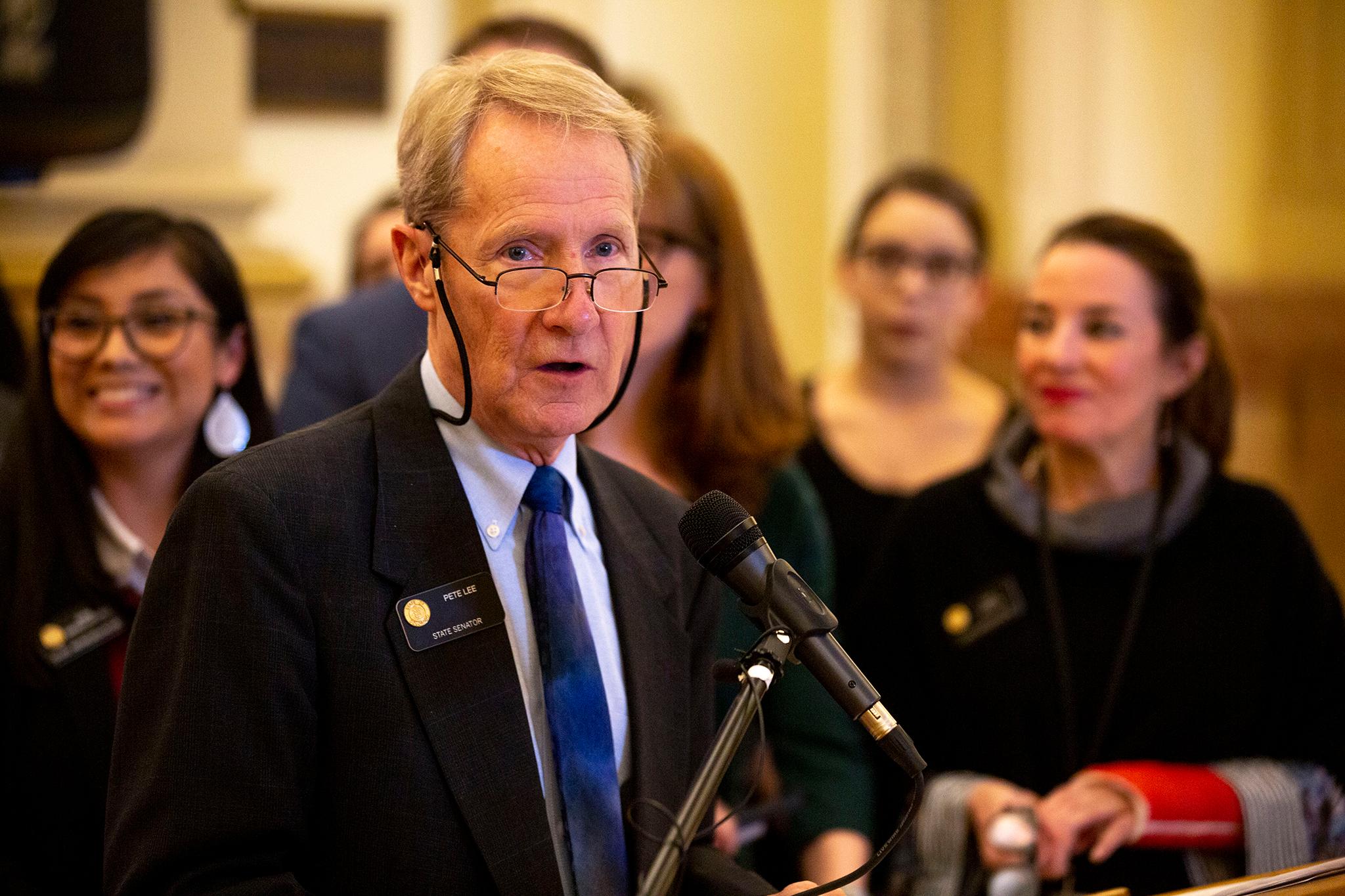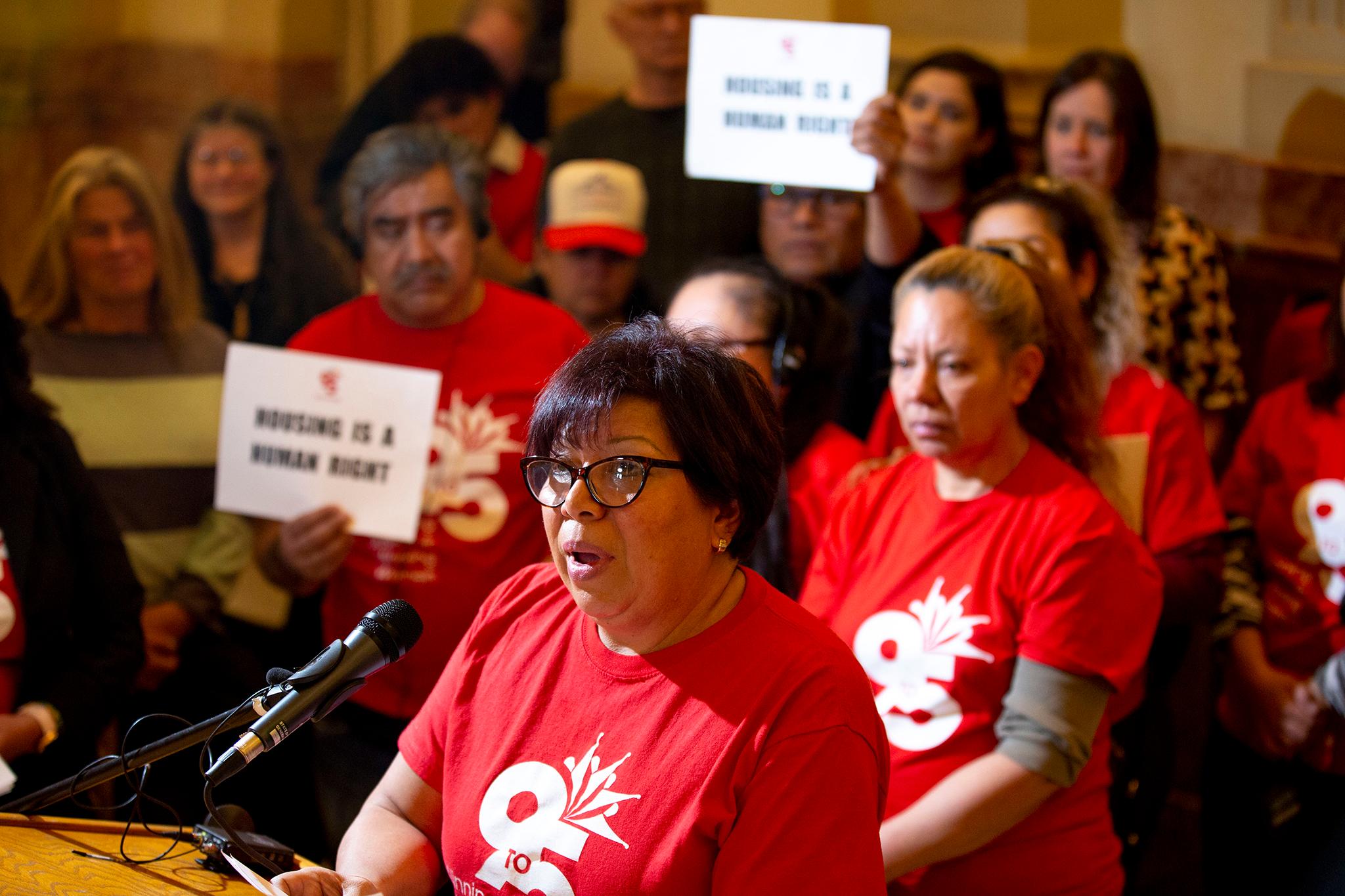After the owner closed the park where Luz Galicia had lived in her own mobile home for five years, the only housing she could find was a smaller apartment where the rent was twice what she had paid to lease her lot.
In an interview at the state Capitol, Galicia said she thinks she would still be a homeowner if a bill that legislators are considering this session had been law when she was living at Denver Meadows -- which, despite the name, is in Aurora.
People who own mobile homes typically rent the lots on which their structures sit from park owners. Under the proposal that Galicia came to the Capitol to support, a park owner who intends to sell his or her land must inform mobile home owners a year in advance and spell out what would be considered a reasonable offer. A group of the homeowners would then have three months to put together a proposal to buy the park. The land owner would be required to provide information the homeowners need to prepare their offer and to negotiate in good faith. But they would not be required to accept their offer.
HB20-1201 won approval from the House Committee on Transportation and Local Government Wednesday with support from all seven Democrats on the committee and opposition from all four Republicans.
On the same party line vote Wednesday, the committee also approved HB20-1196, which would amend legislation passed last year designed to provide more protections for mobile home park residents. The proposed changes touch on concerns that mobile home owners who complain about management might face retaliation, that they don't always get clear information about utility and other charges, and that their privacy is not always respected by park managers.
The bills, which were supported by the governments of Adams, Boulder and Pitkin counties and the cities of Aurora, Boulder and Fort Collins, as well as such organizations as the Colorado Coalition for the Homeless, are now closer to being considered by the full legislature at a time when mobile homes are increasingly being looked to as a way to ensure low-income families can buy homes.
"Mobile homes are the last bastion of affordable housing in Colorado," State Sen. Pete Lee said at a news conference before Wednesday's committee meeting. Lee is an El Paso County Democrat and sponsor of HB20-1196.

Lee's proposal, which proponents said would ensure fair practices, drew criticism Wednesday from managers and owners of mobile home parks. Opponents said legislators should first give the changes made last year more time to play out. They argued the new bill could draw out the eviction process for people whose actions endangered their neighbors and add to the burden of paperwork on an industry that is providing affordable housing without relying on government subsidies.
Deborah Wilson, a Denver-area lawyer who represents mobile home park owners, estimated the length of time it would take to evict a mobile home owner could double, from about three months to six. She and others who testified before the committee said the bill characterized park managers who enforced rules as inherently retaliatory.
The bill meant to facilitate purchases of parks by mobile home owners was described by opponents as an infringement on private property rights that would delay and disrupt commercial sales.
"This is more regulation on unsubsidized affordable housing," Christian Hendrickson, a lawyer representing the park trade group, the Rocky Mountain Home Association, told the committee.
Galicia said that after her divorce, she couldn't keep up the payments on a home she had owned. She and her two daughters first moved to a small apartment before finding a dilapidated two-bedroom mobile home she bought for $10,000. She spent another $10,000 refurbishing the mobile home to make it habitable.
She paid $900 a month for a lot at Denver Meadows. During the five years she lived there, she was able to afford to put her daughters through college.
"I was not asking to have luxury," she said. "I just wanted to help my daughters."
In 2015, the Denver Meadows owner sought a rezoning, apparently in preparation for selling or redeveloping the park. Residents feared being displaced and protested. With support from a national manufactured housing nonprofit, they made an offer to buy the park, but the owner wanted three times as much as their $20 million bid. Galicia said the residents had no way of knowing if the owner's price was reasonable. The park closed last year, displacing about 100 families.
Galicia could not find a new park for her mobile home, which would have been expensive to move. She sold her home for $10,000, though she believes it was worth $27,000. Her new apartment is smaller than her old mobile home, and rent is $1,800. Galicia works four jobs -- caring for seniors, cleaning homes and organizing for both 9 to 5 Colorado, which is an advocacy group for working families, and ROC USA, which is a national nonprofit that helps mobile home owners buy their parks.
She said she would like to own her own home again.
"I'm a little scared to get a mobile home," she said. "But, realistically, it's such a great opportunity."













